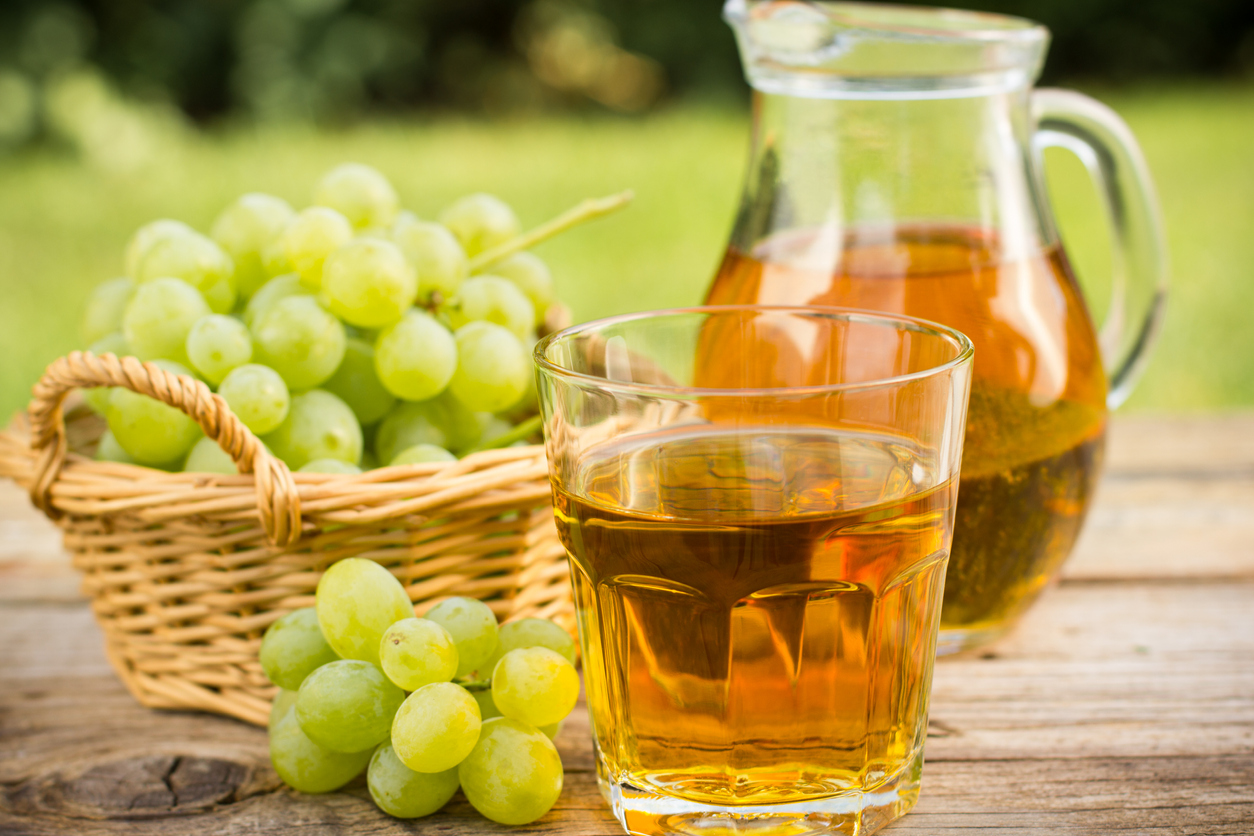From Vine to Wine: Exploring the Art of Grape Cultivation in Nigeria with Wigmore Trading
From Vine to Wine: Exploring the Art of Grape Cultivation in Nigeria with Wigmore Trading
Are you familiar with the saying, “Good things come to those who wait”? Well, in the case of grape cultivation in Nigeria, it’s more like “good things come to those who innovate and persevere.” Join us on an exciting journey as we delve into the captivating world of vineyards and winemaking in Nigeria, guided by none other than Wigmore Trading. Get ready to uncork a wealth of knowledge about this ancient art form that has taken root in unexpected places. From Vine to Wine: Exploring the Art of Grape Cultivation in Nigeria promises to leave your taste buds tingling and your curiosity quenched as we uncover how passion, dedication, and a touch of ingenuity are transforming Nigeria’s agricultural landscape. So grab a glass (or two) and let’s embark on this vinicultural adventure together!
Introduction to Wigmore Trading and Grape Cultivation in Nigeria
Introduction:
Nigeria may not be the first country that comes to mind when thinking about grape cultivation and winemaking. However, with its diverse climate and fertile soil, Nigeria has become a promising destination for grape growers and wine enthusiasts. In this blog post, we will introduce you to Wigmore Trading – the leading supplier of high-quality grapevines in Nigeria – and explore the thriving industry of grape cultivation in the country.
Wigmore Trading:
Wigmore Trading is a Nigerian-based company that specializes in supplying premium quality grapevines to local farmers and wineries. Established in 2010, Wigmore Trading aims to promote sustainable agriculture practices and improve the quality of grapes grown in Nigeria. They have partnered with renowned international suppliers such as VineTech Australia and Raynor Foods South Africa to bring top-quality vines to Nigerian farmers.
The company offers a wide range of grape varieties suitable for different climatic conditions found across Nigeria. These include popular varieties like Cabernet Sauvignon, Merlot, Chardonnay, Chenin Blanc, among others. Apart from selling vines, Wigmore Trading also provides technical support and consulting services to help local farmers achieve maximum yields from their vineyards.
The History of Grape Cultivation in Nigeria
The cultivation of grapes in Nigeria dates back to ancient times, with evidence of grape seeds and vines found in archaeological sites from as early as 1000 BC. The history of grape cultivation in Nigeria can be traced back to the Nok culture, which was known for its advanced agricultural practices and trade routes.
During the colonial era, the British introduced new varieties of grapes to Nigeria for wine production, but it was not until the 1960s that commercial grape cultivation began. The first vineyards were established in Plateau State by missionaries who recognized the region’s potential for grape growing due to its high altitude and cool climate.
In the 1970s, a government-backed project called “Operation Feed the Nation” aimed to increase local food production and reduce dependence on imported goods. As a result, more farmers began cultivating grapes across various regions of Nigeria such as Kaduna, Kano, Bauchi, Sokoto, and Benue states.
However, despite these efforts, grape cultivation faced many challenges in Nigeria. One major obstacle was inadequate knowledge about modern viticulture techniques among farmers. This led to low yields and poor quality grapes that were not suitable for winemaking.
In recent years, there has been a renewed interest in grape cultivation with private investors and companies entering into the industry. Wigmore Trading Company is one such company that is taking steps towards promoting sustainable grape farming practices in Nigeria.
Benefits of Growing Grapes in Nigeria with Wigmore Trading
Nigeria, with its warm climate and fertile soil, is a promising location for grape cultivation. And with the help of Wigmore Trading, a leading agricultural company in Nigeria, growing grapes has become an even more attractive venture. In this section, we will discuss the various benefits of growing grapes in Nigeria with Wigmore Trading.
1. Access to Quality Grape Varieties:
One of the major benefits of working with Wigmore Trading is their access to high-quality grape varieties. They source their seeds from reputable international suppliers, ensuring that farmers have access to disease-resistant and high-yielding grape varieties. This not only increases the chances of a successful harvest but also allows farmers to experiment with different types of grapes and cater to diverse market demands.
2. Expert Guidance and Support:
Wigmore Trading provides extensive support and guidance to farmers throughout the grape cultivation process. Their team of experts offers training on best practices for planting, pruning, fertilizing, and harvesting grapes. They also provide personalized consultation services to address any specific challenges that may arise during cultivation.
3. Affordable Farming Inputs:
Another advantage of partnering with Wigmore Trading is their commitment to providing cost-effective farming inputs without compromising on quality. From pesticides and fertilizers to irrigation systems and trellis materials – they offer a wide range of products at competitive prices.
Challenges Faced by Grape Farmers in Nigeria
Grape farming in Nigeria is a challenging and complex process that requires extensive knowledge, hard work, and dedication. While the country has a favorable climate for grape cultivation, there are several challenges that grape farmers face on a daily basis. In this section, we will explore some of the major challenges faced by grape farmers in Nigeria.
1. Limited Access to Quality Planting Materials:
One of the main challenges faced by grape farmers in Nigeria is the limited availability of quality planting materials. The majority of grape varieties grown in Nigeria are imported from other countries, making them expensive and difficult to acquire. This limits the options available for farmers and can also result in lower yields or poor quality grapes.
2. Lack of Technical Knowledge:
Another major challenge faced by grape farmers in Nigeria is the lack of technical knowledge about grape cultivation techniques. Many small-scale farmers rely on traditional methods passed down through generations, which may not be as efficient or effective as modern techniques. This can lead to lower yields and reduced profitability for farmers.
3. Pest and Disease Management:
Pests and diseases are a constant threat to vineyards all over the world, and it’s no different for Nigerian grape farms. However, due to limited resources and access to pesticides, controlling these threats can be a significant challenge for farmers. In some cases, outbreaks can destroy entire crops if not managed properly.
Techniques Used by Wigmore Trading for Successful Grape Cultivation
Wigmore Trading is a leading agricultural company in Nigeria that specializes in the cultivation and distribution of high-quality grapes. With years of experience in the industry, Wigmore Trading has developed various techniques to ensure successful grape cultivation in Nigeria’s challenging climate. In this section, we will explore some of the techniques used by Wigmore Trading for successful grape cultivation.
1. Soil Preparation:
The first step towards successful grape cultivation is preparing the soil. Wigmore Trading uses advanced techniques such as soil testing to determine the nutrient levels and pH balance of the soil. Based on these results, they add organic manure and other supplements to improve soil fertility and create an optimal environment for grape growth.
2. Proper Irrigation:
Grapes require adequate water supply for healthy growth and development. However, too much or too little water can have adverse effects on their yield and quality. To tackle this challenge, Wigmore Trading uses drip irrigation systems that deliver precise amounts of water directly to the plant’s roots. This method conserves water while ensuring that grapes receive adequate hydration.
3. Pruning Techniques:
Pruning is a critical technique used by Wigmore Trading to control vine growth and promote better fruit production. They follow a systematic approach called ‘cane pruning,’ where they remove old wood from previous seasons’ growth while retaining younger canes with new buds for better fruiting.
The Different Varieties of Grapes Grown in Nigeria
Grapes are one of the oldest cultivated fruits, with a history dating back thousands of years. In Nigeria, grape cultivation has become an emerging industry in recent years, thanks to the efforts of companies like Wigmore Trading who have introduced modern techniques and high-quality varieties of grapes to the country.
There are several different varieties of grapes grown in Nigeria, each with its unique characteristics and uses. Let’s take a closer look at some of the most popular types:
1. Thompson Seedless Grapes: This variety is also known as Sultana or Sultanina grapes and is one of the most widely grown types in Nigeria. They are small to medium-sized green grapes with a thin skin and a sweet taste. These grapes are usually used for making raisins due to their high sugar content.
2. Flame Seedless Grapes: As the name suggests, these grapes are seedless and have a deep red color when ripe. They have a crisp texture and a sweet flavor, making them perfect for eating fresh or using in salads or desserts.
3. Crimson Seedless Grapes: Another seedless variety, Crimson Seedless grapes have a dark red color with a slightly tart taste. They are often used for making juice or wine due to their bold flavor profile.
4. Red Globe Grapes: These large round grapes have a deep purple color when ripe and are known for their juicy sweetness. They can be eaten fresh or used in cooking and baking.
Sustainable Practices Used by Wigmore Trading for Environmentally-Friendly Cultivation
At Wigmore Trading, we are committed to implementing sustainable practices in our grape cultivation process. This not only allows us to produce high-quality grapes for winemaking, but also helps us contribute towards a healthier and more environmentally-friendly Nigeria.
1. Organic Farming:
We believe in using natural methods and avoiding the use of harmful chemicals in our vineyards. Our grapes are grown using organic fertilizers, such as compost and manure, instead of synthetic fertilizers. We also promote crop rotation and companion planting to maintain soil fertility and reduce pests naturally.
2. Water Conservation:
Water is a precious resource, especially in regions like Nigeria where droughts are common. At Wigmore Trading, we have implemented drip irrigation systems that deliver water directly to the roots of the grapevines, minimizing water wastage. We also collect rainwater for irrigation purposes during dry seasons.
3. Soil Health Management:
Healthy soil is crucial for growing healthy crops. To ensure this, we regularly conduct soil tests to assess its nutrient levels and make amendments accordingly. We also practice minimal tilling techniques to prevent erosion and improve soil structure.
4. Biodiversity Preservation:
We understand the importance of preserving biodiversity on our land for the overall health of our ecosystem. That’s why we have set aside areas within our vineyards to encourage wildlife habitats and promote plant diversity.
The Process of Turning Grapes into Wine
The process of turning grapes into wine is a complex and delicate art that requires precision, patience, and expertise. In Nigeria, this process is made even more remarkable by the unique climate and soil conditions that contribute to the distinct flavors of Nigerian wines. At Wigmore Trading, we are passionate about exploring the art of grape cultivation in Nigeria and showcasing the steps involved in turning these humble fruits into exquisite wines.
1. Harvesting:
The first step in the winemaking process is harvesting the grapes from their vines. This usually takes place during late summer or early fall when the grapes have reached their optimal ripeness. In Nigeria, this typically happens between September to November when the dry season begins. The timing of harvest is crucial as it affects the sugar levels and acidity in the grapes, which can significantly impact the final taste of the wine.
2. Sorting and Crushing:
After harvesting, the grapes are carefully sorted to remove any damaged or unripe ones before being crushed. Traditionally, crushing was done by stomping on them with bare feet, but nowadays mechanical crushers are used for efficiency and hygiene purposes.
3. Pressing:
Once crushed, the grape juice or must (consisting of juice, skin, seeds) is separated from solid parts through pressing. This process extracts a significant amount of juice while also adding tannins from the skins into it.
–
Grape cultivation in Nigeria has a long history, dating back to the early 20th century when British colonizers first introduced the crop to the country. However, it was not until recent years that the art of grape cultivation has gained momentum and recognition in Nigeria. Thanks to companies like Wigmore Trading, which have been at the forefront of promoting and supporting local grape farmers, this once-neglected industry is now flourishing.
One of the key aspects of successful grape cultivation is selecting the right variety for a specific region’s climate and soil conditions. The experts at Wigmore Trading understand this well and have been working closely with local farmers to identify suitable grape varieties that can thrive in Nigerian soil. Through their extensive research and experimentation, they have successfully identified several varieties that produce high-quality grapes with unique flavors.
In addition to selecting the right variety, proper land preparation is also crucial for successful grape cultivation. Wigmore Trading provides essential support and guidance to local farmers on soil testing, land preparation techniques such as trellising, irrigation systems, and pest management strategies. This assistance ensures that each farmer’s vineyard is set up for success from the very beginning.








Comments are closed.